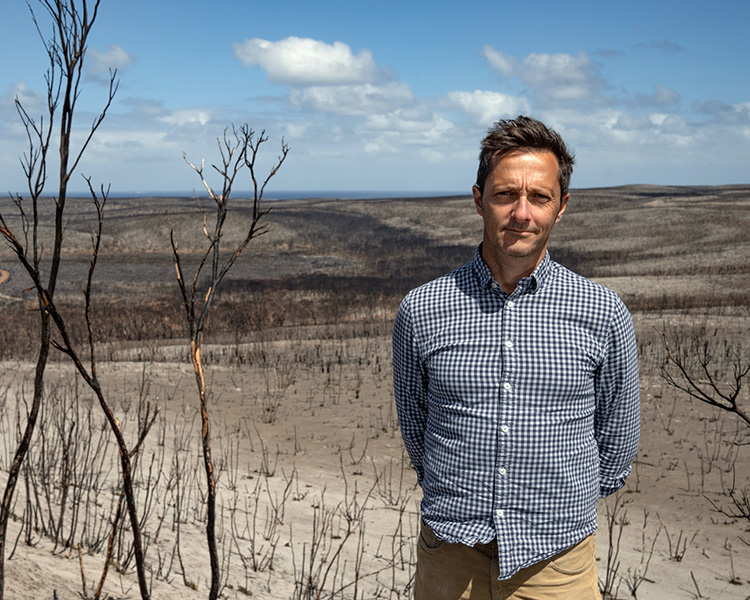
New work to support bushfire recovery and COVID-19 impacts
Thursday, 26 March 2020On 3 March the Australian Government announced an additional $2 million in funding to the Threatened Species Recovery Hub to deliver research and scientific advice to help support wildlife and habitat recovery efforts following Australia’s bushfire crisis. The funding comes from the Australian Government’s National Environmental Science Program.
As bushfire recovery research needs will exceed the capacity of this funding, we will direct attention to the most strategic and pressing needs in consultation with: the Australian Government’s Wildlife and Threatened Species Bushfire Recovery Expert Panel; state, territory and Australian Governments and key stakeholders. Final approval of new bushfire recovery support projects will rest with the Australian Government’s Department of Agriculture, Water, and the Environment.
A strength of our hub is the extensive network of researchers who have been collaborating with over 160 project partner organisations for the past five years. This network includes people with expertise in highly relevant topics including the impacted species, fire ecology, structured decision making, modelling and monitoring. The hub will look to collaborate with the broader science and conservation community to get the post-fire recovery job done.
For many impacted species, including poorly understood insect species, effective prioritisation and planning is hampered by a lack of information. In many cases, accurate distribution maps do not exist, and population status and trends are not known; monitoring is non-existent or of low quality. We will address this through several projects, including prioritisation of post-fire reconnaissance to understand post-fire population status, by helping to design and establish new monitoring programs to track recovery and effectiveness of recovery actions, through expert elicitation to assess species vulnerability to fire, and through prioritisation of emergency actions.
The rapid rollout of meetings and expert workshops to help mobilise the post-fire recovery response now faces the added and acute challenge of COVID-19. COVID-19 will change the way we work for the foreseeable future. Following the lead of our host and partner institutions, we must take a proactive approach to reduce spread and minimise risk to our researchers and partners. Hub workshops and meetings that involve significant domestic travel for participants have now been postponed. We will take extra precaution to prevent transmission to remote communities. Where fieldwork and workshops with partners are disrupted we will keep lines of communication open and work together to plan contingencies in collaboration with our partners.
Given the urgent need for action to support the recovery of threatened species and their habitats after the fires we will have to work more strategically to make all of this happen online and through innovations in the way we collaborate. A significant hub-wide effort has already taken place to ensure we can continue to work and support threatened species recovery under the constraints imposed by COVID-19.
Together we are enduring challenges of unprecedented proportion and character. It is hard to imagine more extreme events emerging this year but if we get a plague of frogs, let's hope they are threatened spotted tree frogs and not cane toads. While the fires and pandemic are complicating our final year of research and may permit less face-to-face engagement with partners and stakeholders than we would like, it does not diminish our commitment to deliver knowledge to support recovery of Australia’s threatened species and ecological communities.
Prof Brendan Wintle
Director
National Environmental Science Program, Threatened Species Recovery Hub